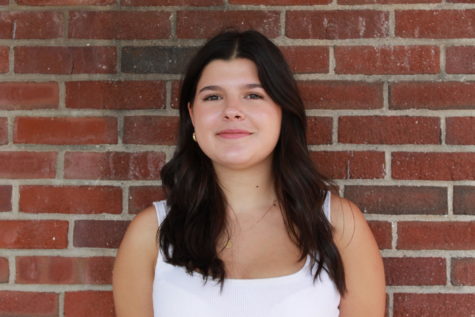Answering the question we’re all tired of hearing: What do you want to be when you grow up?
March 1, 2023
I get it. We all want to find ourselves. From MBTI personality quizzes, to Buzzfeed quizzes that tell you what pizza topping you are- there’s a constant bombardment and pressure to figure out who you are. High school exacerbates this feeling. You hear the same thing from your parents, your teachers, your guidance counselor: “What do you want to do?” and “Who do you want to be?” It’s suffocating. Only a few years back, you wanted to be an astronaut, or a TV show host, or a famous baseball player. And now? If you’re anything like me, you don’t have a clue.
In her novel, “Becoming” First Lady Michelle Obama states, “Now I think it’s one of the most useless questions an adult can ask a child— What do you want to be when you grow up? As if growing up is finite. As if at some point you become something and that’s the end.”
Obama brings up a point that is often forgotten. We never stop changing and evolving. We should only hope to chase goal after goal. In fact, I hope I never reach a point where I’m not evolving anymore.
It’s okay to feel lost. I often look to the adults around me for answers. It turns out, almost none of their career paths have been totally linear. Some of them have had three or four major career changes before they found their dream job. But, they all ended up exactly where they were supposed to.
We are all constantly encouraged to “seek success”. Some people define success as a financial state, some define it as an emotional state, some define it as meeting one’s goals- but for some reason, we’ve all agreed to strive for it. So, what is success? The archaic definition of success is “the good or bad outcome of an undertaking,” and with that, I resonate the most.
Success does not only occur when you get the expected outcome. When things don’t go the way you expect them to, it’s not necessarily a total loss. Even in a laboratory setting, if your data doesn’t reflect your initial hypothesis- you change the hypothesis, you don’t toss out your data. Not all outcomes are perfect, and thankfully, most outcomes are not permanent.
Take a deep breath. Over the past few years, you’ve undergone the most change you’ve ever gone through- whether it’s been focusing on getting good grades, learning to drive, or applying for college. Considering that upward trajectory of complexity, it’s clear that life never really gets simpler. Next time someone asks you what you want to be, tell them the truth. My answer is that I don’t have a crystal ball. I can’t say with absolute certainty what my future will look like, but what I can say is that I’m ready for anything that is to come.




francesca • Mar 1, 2023 at 1:32 pm
Love this! It’s so comforting to read a well-written piece on how we all feel.